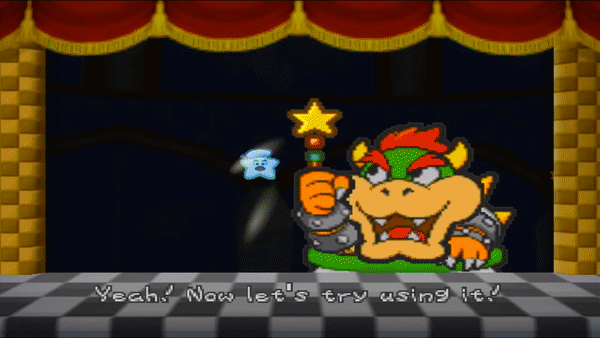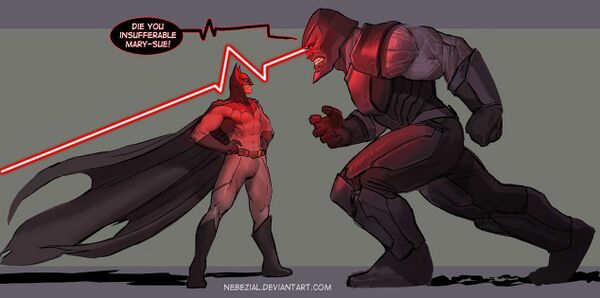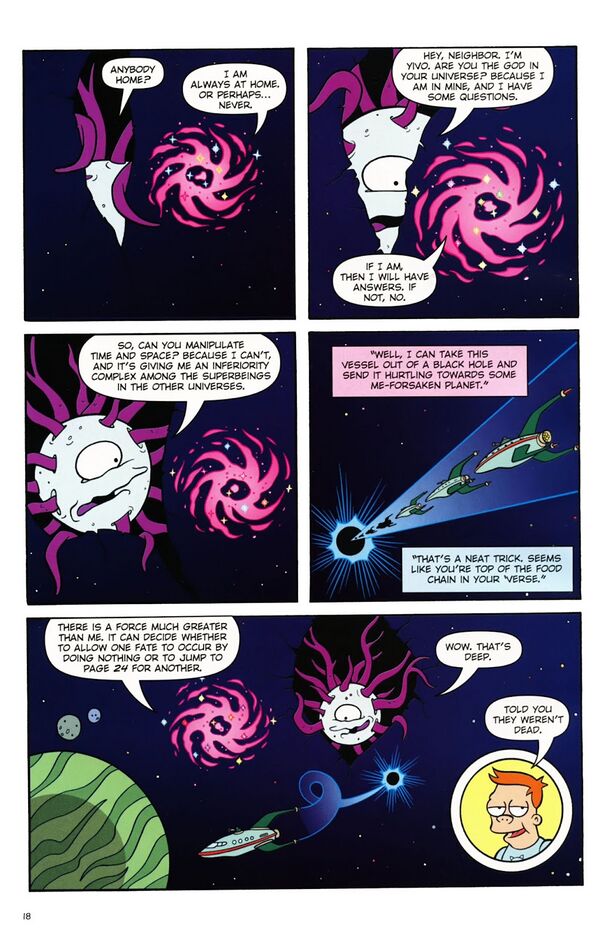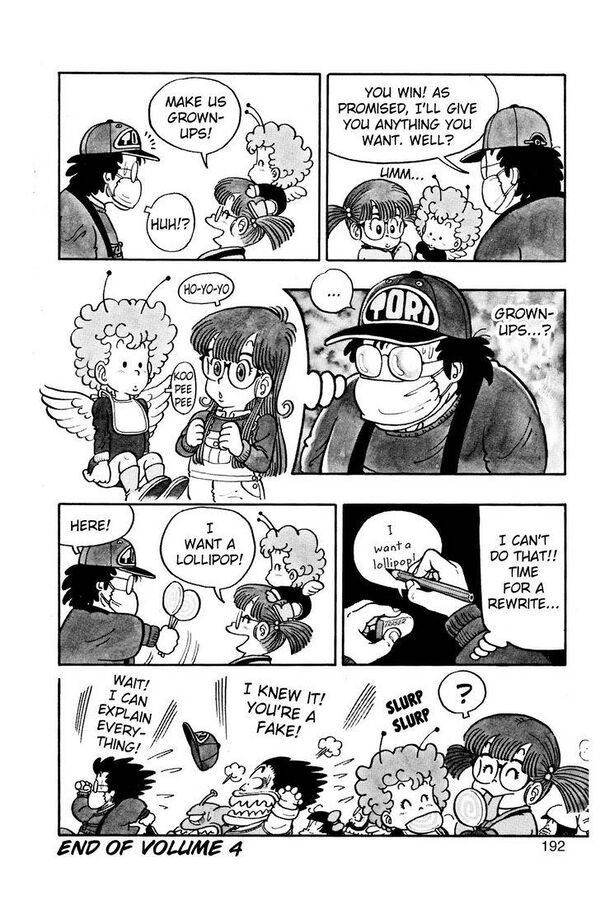The official discord link if you wish to join the discord: https://discord.gg/j5RKwCvAFu
Support the wiki on our official Ko-Fi page or Patreon page!
Plot Manipulation: Difference between revisions
m |
|||
| (31 intermediate revisions by 8 users not shown) | |||
| Line 1: | Line 1: | ||
==Background== | |||
'''Plot Manipulation''' is the ability to control the Narrative Story and it's narrative elements, this allows the User to do things that would be seen as unreasonable by "readers" such as causing Deus Ex Machina, Plot Induced Stupidity or invoke Archetypes (Jungian or otherwise) and apply them to the scenario such as the Underdog, the Over-confident Villain, The Hubris ridden Hero, and many more. | |||
While the way Plot Manipulation is shown varies, it must be shown to change the literal narrative of the verse, due to it's similarity to [[Fate Manipulation]], the major differences between the two is that Plot Manipulation works through manipulating the Narrative level, rather then manipulating the Inverse level. | |||
While the way Plot Manipulation is shown varies, it must be shown to change the literal narrative of the verse, due to it's similarity to Fate Manipulation, the major differences between the two is that Plot Manipulation works | |||
==Possible Applications== | ==Possible Applications== | ||
*[[Reality Warping]], the user are capable of warping the reality of the story. | *[[Reality Warping]], the user are capable of warping the reality of the story. | ||
*[[Time Manipulation]] | *[[Time Manipulation]] | ||
*Fate Manipulation | *[[Fate Manipulation]] | ||
*[[Conceptual Manipulation]] | *[[Conceptual Manipulation]] | ||
*Causality Manipulation | *[[Causality Manipulation]] | ||
==Types== | ==Types== | ||
*'''1 | [[File:Chowder_-_No,_you%27re_not_in_this_episode._(360p).mp4|thumb|center|600px|Chowder erases Truffles from the narrative by noting she's not in the episode]] | ||
*'''2 - | *'''Type 1: Narrative Manipulation:''' This state of plot manipulation is the character affecting the very narrative, the narrative is how the events of a story relate and in what order, put simply, narrative is how one chooses to tell a story, many apply different narratives to the same story all the time. Typically those with narrative manipulation are aware of the [[Breaking the Fourth Wall|fourth wall]]. | ||
*'''3 | **'''Users:''' [[Chowder]] [[Chowder (Series)|(Chowder)]] | ||
[[File:Ezgif-2-a13a6188ba.gif|thumb|center|600px|Bowser changing the story with the Star Rod.]] | |||
*'''Type 2: Story Manipulation:''' This state of plot manipulation is the character affecting the story, this could be the story of the media in general being told, or the story of an event told in the series. Story is an account of imaginary or real people and events told for entertainment, thus one with story manipulating controls the very story told itself, then just the narrative events. Story Manipulation users can be aware of the [[Breaking the Fourth Wall|fourth wall]] though in a lot of cases they are manipulating a story that isn't the media itself and are thus not aware they are within a fictional story. As an example, the user could only be able to manipulate the story of specific fictions in their series, such as a famous comic book, changing the way the comic book ends. | |||
**'''Users:''' [[YHVH]] [[Megami Tensei|(Megami Tensei)]], [[Travis Touchdown]], [[Zim]] | |||
[[File:Main-qimg-00755de716b0172c2f330ecc5fd5a3a4.jpg|center|600px]] | |||
*'''Type 3: Plot Armor:''' The User is protected by the plot themselves allowing them to pull things in their favor or completely re-write victories/loses. The user could also be amped by literal PIS/Plot Control to the point that they seem like they are completely unbeatable. Unlike the standard ability of [[PIS]] this ability is an actual, legitimate in-universe explanation for why a character can pull the stunts they've done and survive the seemingly impossible. | |||
**'''Examples:''' [[Ness]] [[Earthbound|(Earthbound)]], [[Carmen Sandiego (2019)]] | |||
==Aspects== | |||
*'''Traditional:''' The User is able to control the narrative/story or is able to influence the narrative/story in various ways, this can often be shown as the User rewriting things that have already happened, is happening, or will happen, or having complete control over the story itself. | |||
**'''Users:''' [[Chowder]] [[Chowder (Series)|(Chowder)]] | |||
[[File:ReaderAuthorityExample.jpg|center|600px]] | |||
*'''Reader Authority:''' The User is not of the series and instead is in the "Real World" whereby they can influence the plot as the reader, such as stopping, starting, rewriting things into the plot and being able to ignore elements of the Plot due to the way they see/interpret the plot. | |||
***'''Users:''' | |||
[[File:Pdr._slump_v004-192.jpg|center|600px]] | |||
**'''Author Authority:''' Similar to Reader Avatar, however, unlike Reader Avatar, the User is in fact the author of the story, controlling every facet of the story in any capacity, with this the Author can impose anything they like, even over-ruling Reader Avatars and can change virtually anything, such as behavior, ideals, motives, life, reality, death, destiny, magic, etcetera. Though this is only within the story they control. As the Author, the User can dictate anything about the story. | |||
***'''Users:''' [[Flumpty Bumpty]] [[One Night At Flumpty's|(One Nights at Flumpty's)]] | |||
==Limitations== | ==Limitations== | ||
The plot is a conceptual narrative and story of causality, thus those that naturally [[Resistance|resist]] [[Causality Manipulation|causality]] or are [[Acausality|acausal]] may be unaffected. Having a resistance to [[Fate Manipulation]] would in most cases garner a resistance to [[Plot Manipulation]] as it is merely just another form of fate through a story or narrative rather then a metaphorical thread. | |||
[[Category:Powers and Abilities]] | [[Category:Powers and Abilities]] | ||
Latest revision as of 05:03, 8 October 2024
Background
Plot Manipulation is the ability to control the Narrative Story and it's narrative elements, this allows the User to do things that would be seen as unreasonable by "readers" such as causing Deus Ex Machina, Plot Induced Stupidity or invoke Archetypes (Jungian or otherwise) and apply them to the scenario such as the Underdog, the Over-confident Villain, The Hubris ridden Hero, and many more.
While the way Plot Manipulation is shown varies, it must be shown to change the literal narrative of the verse, due to it's similarity to Fate Manipulation, the major differences between the two is that Plot Manipulation works through manipulating the Narrative level, rather then manipulating the Inverse level.
Possible Applications
- Reality Warping, the user are capable of warping the reality of the story.
- Time Manipulation
- Fate Manipulation
- Conceptual Manipulation
- Causality Manipulation
Types
- Type 1: Narrative Manipulation: This state of plot manipulation is the character affecting the very narrative, the narrative is how the events of a story relate and in what order, put simply, narrative is how one chooses to tell a story, many apply different narratives to the same story all the time. Typically those with narrative manipulation are aware of the fourth wall.

- Type 2: Story Manipulation: This state of plot manipulation is the character affecting the story, this could be the story of the media in general being told, or the story of an event told in the series. Story is an account of imaginary or real people and events told for entertainment, thus one with story manipulating controls the very story told itself, then just the narrative events. Story Manipulation users can be aware of the fourth wall though in a lot of cases they are manipulating a story that isn't the media itself and are thus not aware they are within a fictional story. As an example, the user could only be able to manipulate the story of specific fictions in their series, such as a famous comic book, changing the way the comic book ends.
- Users: YHVH (Megami Tensei), Travis Touchdown, Zim

- Type 3: Plot Armor: The User is protected by the plot themselves allowing them to pull things in their favor or completely re-write victories/loses. The user could also be amped by literal PIS/Plot Control to the point that they seem like they are completely unbeatable. Unlike the standard ability of PIS this ability is an actual, legitimate in-universe explanation for why a character can pull the stunts they've done and survive the seemingly impossible.
- Examples: Ness (Earthbound), Carmen Sandiego (2019)
Aspects
- Traditional: The User is able to control the narrative/story or is able to influence the narrative/story in various ways, this can often be shown as the User rewriting things that have already happened, is happening, or will happen, or having complete control over the story itself.

- Reader Authority: The User is not of the series and instead is in the "Real World" whereby they can influence the plot as the reader, such as stopping, starting, rewriting things into the plot and being able to ignore elements of the Plot due to the way they see/interpret the plot.
- Users:

- Author Authority: Similar to Reader Avatar, however, unlike Reader Avatar, the User is in fact the author of the story, controlling every facet of the story in any capacity, with this the Author can impose anything they like, even over-ruling Reader Avatars and can change virtually anything, such as behavior, ideals, motives, life, reality, death, destiny, magic, etcetera. Though this is only within the story they control. As the Author, the User can dictate anything about the story.
Limitations
The plot is a conceptual narrative and story of causality, thus those that naturally resist causality or are acausal may be unaffected. Having a resistance to Fate Manipulation would in most cases garner a resistance to Plot Manipulation as it is merely just another form of fate through a story or narrative rather then a metaphorical thread.
